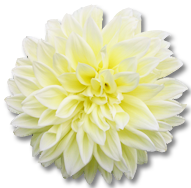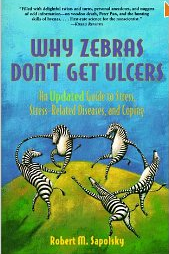

Has anyone read the book, Why Zebras Don’t Get Ulcers, by Robert M. Sapolsky? In this interesting book, we get some practical explanations as to why prolonged stress can cause or intensify a wide range of physical and/or emotional conditions. When we worry or experience various types of stress, our bodies turn on the same physiological responses that an animal’s body does, but we usually do not turn off the stress-response in the same way–through fighting, fleeing or another quick action.
Over time, the chronic activation of the stress response can literally make us sick.
Please don’t despair!
Despite what stress can do, we vary tremendously in how our bodies and psyches cope. Finding new passions as outlets for frustration, the ability to walk away from provocations, the ability to differentiate threatening from neutral interaction, to gain control over social conflicts, to differentiate good news from bad, and the ability to make social connections, can all help us enormously with successful aging.
Good news!! We can sometimes change the way we cope, although this is not always easy. One way is by physical conditioning brought about by regular exercise. We know that this will lower blood pressure and resting heart rates and increase lung capacity which can lessen our risk of cardiac issues now and in the future.
Often it is emphasized that we should find a means to gain at least some degree of control in difficult situations, viewing “bad” situations as discrete events rather than permanent or pervasive ones, and find appropriate outlets for frustration, for social support and for solace in difficult times.
Maybe some of you have tried meditation. When done on a regular, sustained basis, even for 15 minutes per day, one can receive many worthwhile physiological benefits. When we have the ability to make the world a better place, one charitable act at a time or in larger ways, we also can decrease stress.
For some people religion and/or spirituality help in terms of relieving stress and yet for others that is not the case. This is a large discussion and Mr. Sapolsky takes an indepth look at it in a humorous and gentle way.
In the face of strong winds, let me be a blade of grass. In the face of strong walls, let me be a gale of wind.
~Dr Judy ![]()



